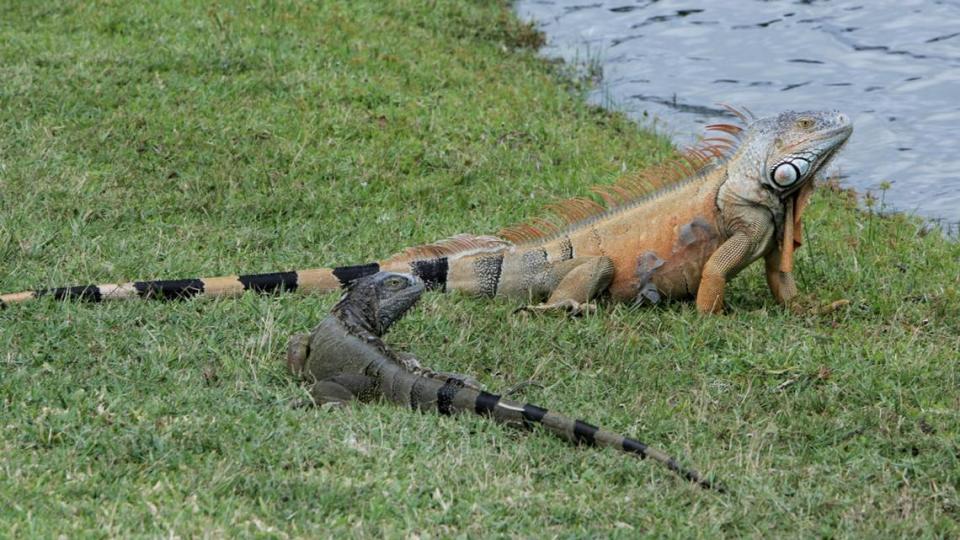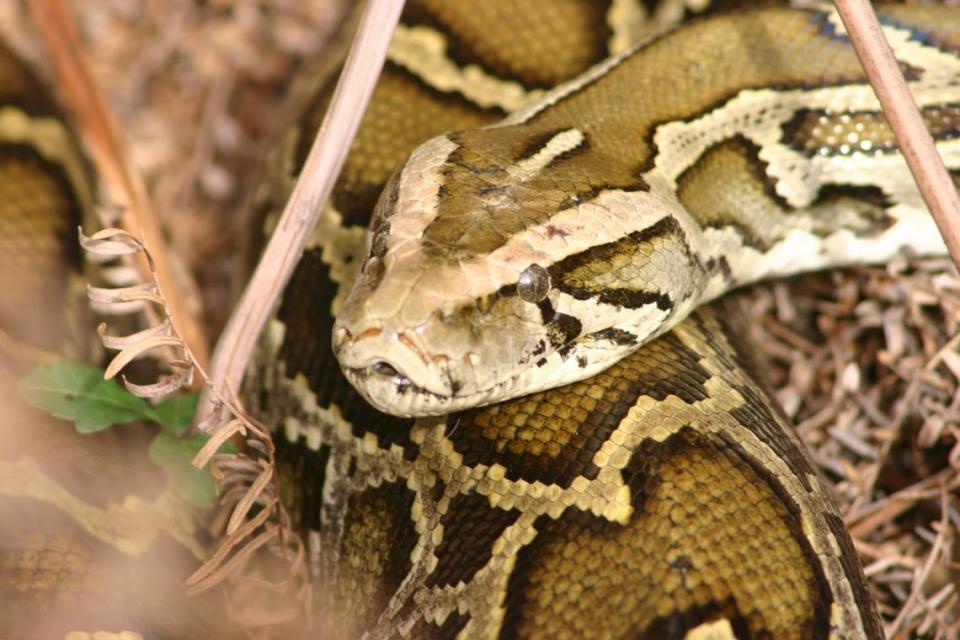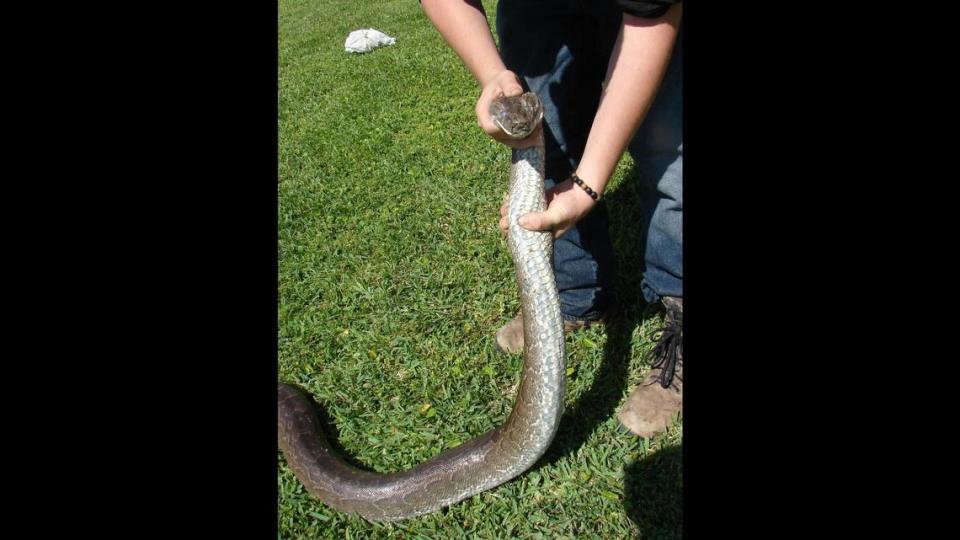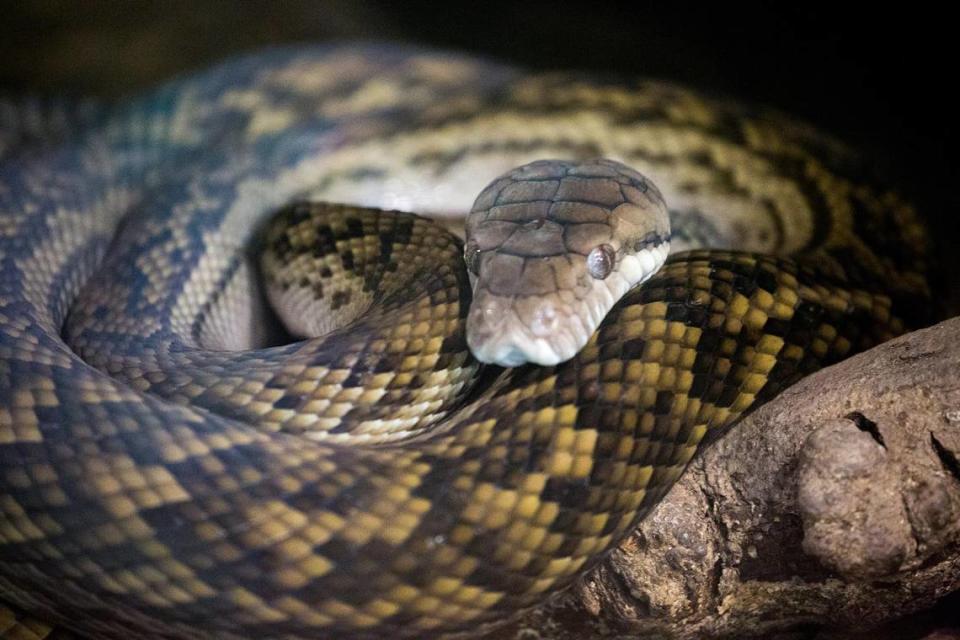Florida just banned iguanas, tegu lizards and Burmese pythons. What other species?
Florida is banning the sale, ownership and breeding of 16 invasive reptiles, including green iguanas, several python species and tegus. However, anyone who currently owns a pet iguana or tegu won’t have to give their scaly critter away.
You’ll still be allowed to keep your pet for the remainder of their lives, but, you’ll have to apply for a free permit, according to the Florida Fish and Wildlife Conservation Commission. Pet owners will also have 180 days to comply with new regulations mandating concrete enclosures for reptiles kept outdoors.
Some of the other species being added to the FWC’s prohibited list, including the Burmese python, were previously on the conditional species list, which meant that breeding was allowed with permits. These reptiles could not be personal pets.
The new changes, which were approved Thursday, will be phased in over the coming months, with the toughest measure — a total ban on commercial breeding in Florida of tegus, iguanas and prohibited snakes — set to go into effect June 2024. The rules also ban importation of these species.
Listen to today's top stories from the Miami Herald:
Subscribe: Apple Podcasts | Spotify | Amazon Alexa | Google Assistant | More options
Details about the application process for the permit to keep pet iguanas and tegus are still pending and will be made available at myfwc.com/wildlifehabitats/nonnatives/rule-update/
Can sharks save the ocean from hurricanes? Their diet might just be the magic recipe
Wondering what other reptiles are being moved onto the FWC’s prohibited list? Here’s the list:
What invasive reptiles did Florida ban?
Green iguanas

An iguana wearing a bandanna attacked a man in Miami because 2020 isn’t weird enough
Burmese pythons

Tegus (all species)

Reticulated pythons

Do I need to wear a mask in the Everglades? What about in Biscayne and Dry Tortugas?
Green anacondas

Nile monitor lizards

Northern and Southern African pythons

Scrub pythons

Amethystine pythons

New exotic invasive snake captured in Everglades National Park. It’s likely a released pet

